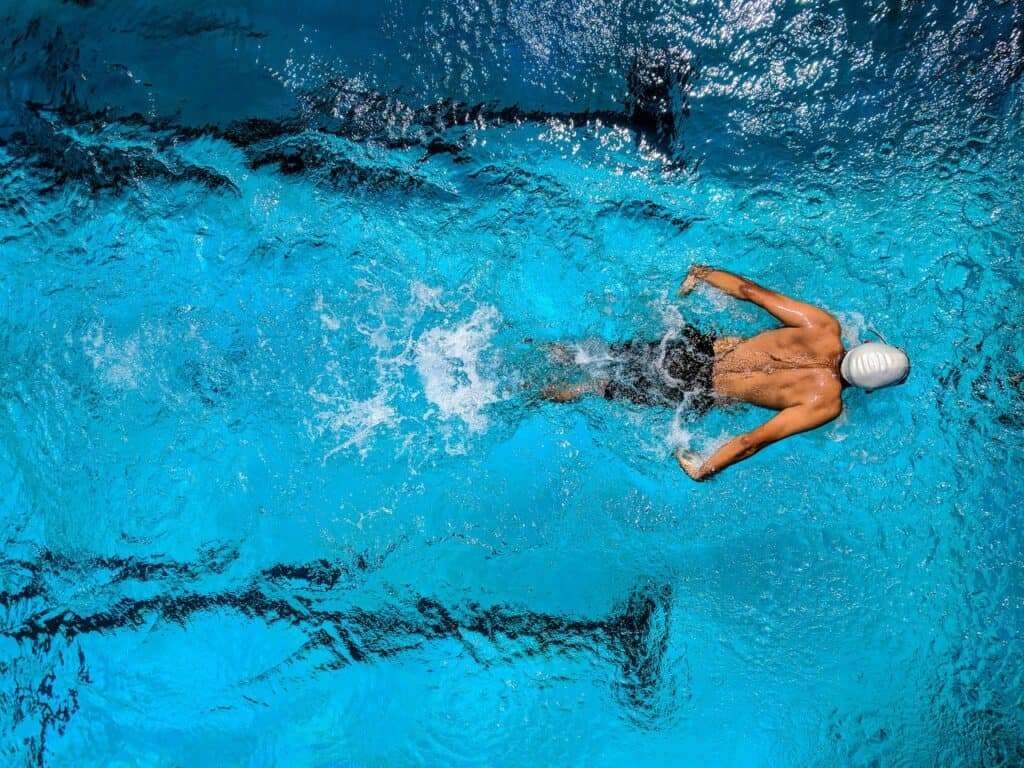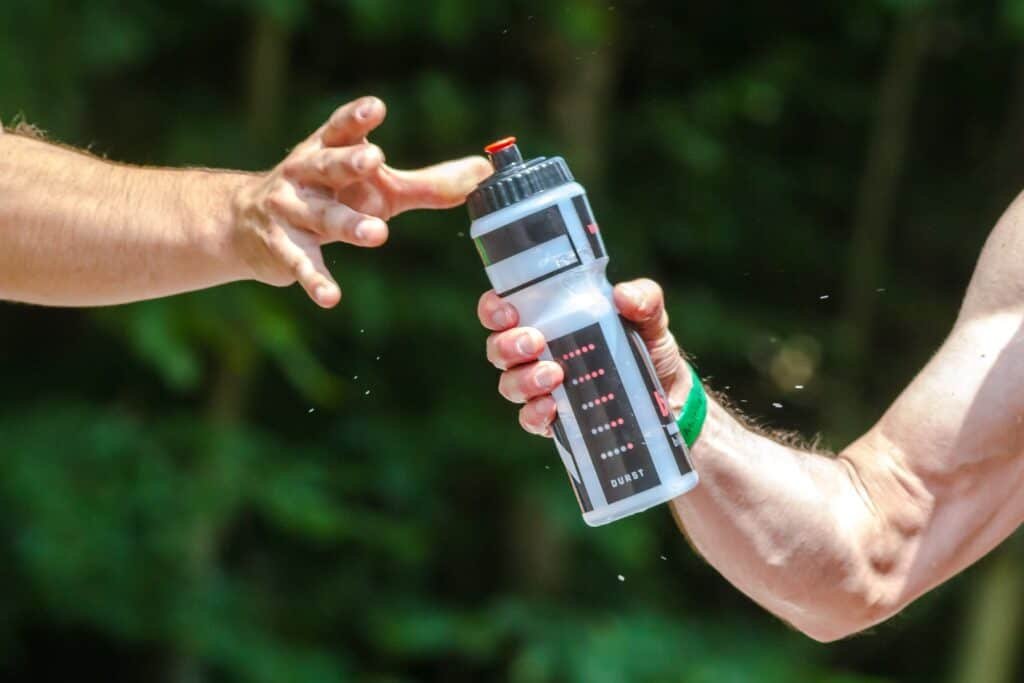An athlete of endurance sport always strives to go further and faster, always taking on a challenge, and triathlon athletes are no exemption. After finishing the Olympic triathlon, the next attempt is 70.5, and probably the next is reaching on the dilemma of doing an Ironman. Can I do an Ironman? Am I capable of finishing an Ironman?
A few percentages of Ironman participants fall on the DNF or “did not finish” group. Ironman is never easy. The 140.6-mile triathlon is a battle of physical strength and mental endurance, and it is not for everybody. Plus, it requires investments and careful planning.
To help you in determining if it’s the right time for you to participate in an Ironman, here are four things we recommend for you to consider.
Change of Lifestyle
The first thing that will change when you start your Ironman journey is your lifestyle. Everyone participating in a triathlon knows that Ironman requires rigorous training. So having a balanced work-life-training lifestyle is a must. It will help you along the way and through the demands of the preparation.
Your training will be very time-consuming. Usually, an Ironman training plan ranges between 24-30 weeks. Though it doesn’t demand you 24 hours per week, you need at least 8 to 10 hours in the first few weeks of your training program. And as time progresses and your Ironman race nears, training time will be doubled up to more than 16 hours per week. Time may vary depending on your Ironman training plan or your coach. But at Team Enduro, we work what’s best for our athlete’s schedules.
At this point, you will need all the support from your family and friends. That they would be understanding whenever you say no to hangouts and family gatherings, or even in doing household chores. You should also be prepared for less socialization, less time doing your hobbies, and less chance of seeing your loved ones. Your frequent statement would be, “Sorry, I can’t. We have a long training tomorrow.” You will also need to rest and recover after training. You will sleep in early, and yet there would be times that you will be awake after everyone is up. Consider if you are willing for your life to be out of balance for a couple of weeks.
But most importantly, consider the things you are to give up to your family. Your training will inevitably affect your family. Talk about your Ironman training with them and what they should expect. Their support will make your intense training easier and make you stronger. They can even offer encouragements and shoulder responsibilities you are to miss out on. However, be also willing to accommodate special events on your training schedule. For example, if there is a family event, plan and discuss it with your family so that your rest days will be on a similar timetable as the celebration. Work with your family, but don’t assume they will conform to it.
So, are you willing to make these sacrifices? If so, read on to the next factor. If not, you might want to reconsider.
Setbacks
The training period lasts for a long time. During these 24-30 weeks of training, many things could happen, from accidental injuries and sudden illness to missed workouts and nutrition failures. You will be met with frustrations and defeat, but a good athlete handles these unexpected happenings well and learns from them. So the next time you encounter the same incident, you know the drill and expect the best outcome.
You should be emotionally strong, goal-oriented, and be determined to finish what you have started. You could rely on your support system when it is impossible to find motivation. Always remember that failure one day does not equate to a failed triathlon career. Setbacks are a part of the training. It will help you build determination, grit, and endurance. Persevere through these difficulties, and everything will be worth it. If you can find the silver linings in every situation, you can thrive in this sport.
Experience
Having experience in the same sport is very significant. Your chances to succeed are higher, and you will enjoy it more. Ironman training takes a toll on your body and mind. Having done sports that involve endurance that takes at least 4 hours to complete, or having accomplished a triathlon before is beneficial. In this way, your body is already pre-conditioned and accustomed to intense training and competition, preventing possible burnouts, injuries, and fatigue.
The competition itself is not the most crucial part of your Ironman journey, but the training process is. A physically fit body, mental stamina, and determination are what you need to succeed in this endeavor. Of course, with the help of your colleagues and training coach.
Take into consideration your experience and abilities in choosing which Ironman race to enter. Each race of Ironman is a different course and trail. It will either maximize your strengths or put into action your weaknesses.
Consider these three points when choosing a marathon for your first attempt in Ironman.
- Location of the race. The World Triathlon Competition organizes Ironman in different countries, states, and cities. Consider the race that is easy to travel, and if possible, a drive-away race. Or participate in the course held in your state. Travelling poses pros and cons, especially if you have to fly to the venue. You may have the opportunity to vacation, but you may also encounter hindrances on the way.
- Your strengths. If you are not a good swimmer, then opting for an open ocean swim course may be challenging. More so, if an open ocean is not easily accessible for you to practice, you may want to pick an Ironman location with a calmer swim start.
- Training Environment. What does your training terrain look like? Is it hilly, or are you more frequent to train on a flat surface? If you have access to mountains for training, select a race with hills. However, practicing on a flat course still imposes its own challenges. Pedaling downhill is far different from constantly pedaling on planes.
Cost
Ironman is expensive! Be equipped and anticipate spending thousands of dollars. The cost of registering alone is more than $700, and that is only the start of your journey.
Then, there are the training costs. These costs include equipment purchases and upgrades, clothing shopping, facility fees, and food nutrition. As you bulk up, you need to rejuvenate lost energy through healthy foods. You sweat more, so you eat more, meaning an additional food allowance.
If you are participating in an Ironman far from home, you should count on the logistic and lodging costs. Most Ironman demands participants to get their packets one or two days before the race proper, so you need at least three days of stay. Plus, your transportation, be it plane, train, or car, accumulates expenses. However, these are not fixed costs. You can still cut on the budget and keep everything in check. For instance, you need running shoes, but you don’t need a $1,000 running shoe nor a $10,000 bike.
The final addition is your training plan cost. Not having a professional training plan is like preparing to fail. Will you subscribe to a training program? Hire a coach? Or search for a free plan online? The decision is up to you. But, hiring a coach and acquiring training advice offers more beyond the impact it will do on your budget.
Team Enduro offers various coaching packages. We can help you prepare for your first Ironman, and you will be trained by an Ironman as well. His knowledge and experiences in Ironman can boost your odds of successfully finishing the race. For more information and inquiries, don’t hesitate to contact us at +858.336.7410 or mail us at wes@team-enduro.com.
The decision to do an Ironman is not an overnight choice. It requires extensive preparation, determination, and motivation. Have a definite ‘why’ on pushing through this 140.6 race, and you will see the finish line. And when you hear the announcer shout, “YOU ARE AN IRONMAN,”! everything pays off.





Recent Comments